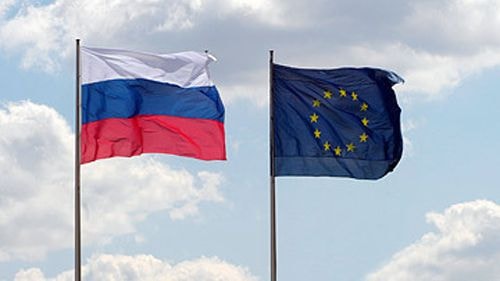Russia – EU: Increasing animosity
European Commission President Jean-Claude Juncker has called for the creation of an EU army to boost the bloc's security.
The call was made in the context of the EU and the US being at a standstill in resolving the Ukraine “mess”. However, in reality, this call shows that the contradictions are growing within the EU, as well as increasing animosity with Russia.
 |
| Russia-EU relations are facing the risk of new tensions (Photo: RIA) |
In an interview with the German newspaper Welt am Sonntag, Mr. Juncker said that the establishment of a joint military force of the European Union would help the bloc avoid security threats from Russia and at the same time be able to build an effective common security and foreign policy. Mr. Juncker also rejected the view that the establishment of a joint military force of the EU would become a challenge to the North Atlantic Treaty Organization (NATO).
However, Mr. Juncker's idea did not receive the approval of some members of the European Union, especially the UK. The UK said that this was an "unpromising" idea and the UK had no intention of joining this military alliance. Many members of the Opposition Party in the UK also said that creating a common European Union army would be a "tragedy" for the region as well as a threat to the sovereignty of each member of this bloc.
The conflicting views on the idea put forward by the President of the European Commission once again show the growing internal contradictions within the bloc. Earlier, at the meeting of the European Union foreign ministers held last weekend in Latvia, the EU showed the world the deep divisions in increasing sanctions against Russia related to the Ukraine issue. If the idea of a joint army is deployed, many EU members fear that the "gap" in Russia-EU relations will certainly be widened, damaging many economies in the European Union, which are dependent on Russian gas.
Mr. Jonathan Steele, an international affairs expert of the Guardian magazine (UK), said that the EU needs to be careful when proposing ideas to damage relations with Russia: "Currently, the EU's sanctions against Russia also have negative effects on some weak economies in the EU. Many countries such as Germany, France, Slovakia... are still afraid that the Russia - EU relationship is getting worse. Therefore, Europe needs to be careful when continuing to make this relationship worse."
And these concerns are inevitable. Russia's Tass news agency on the morning of March 9 quoted a member of the Russian State Duma Defense Committee, Franz Klintsevich, commenting on the idea of creating a common European army, saying that such an army would not help the EU implement common foreign and security policies, but could only play a provocative role. And Russia will not allow military alliances, whether NATO or any other bloc, to threaten Russia's security.
In a recent move, the EU has extended sanctions against Russia for another 6 months. This is considered a rather tough sign of the EU towards Russia. Analysts say that the biggest loser by continuing sanctions and aggression against Russia at this time is none other than the EU./.
According to VOV.VN






